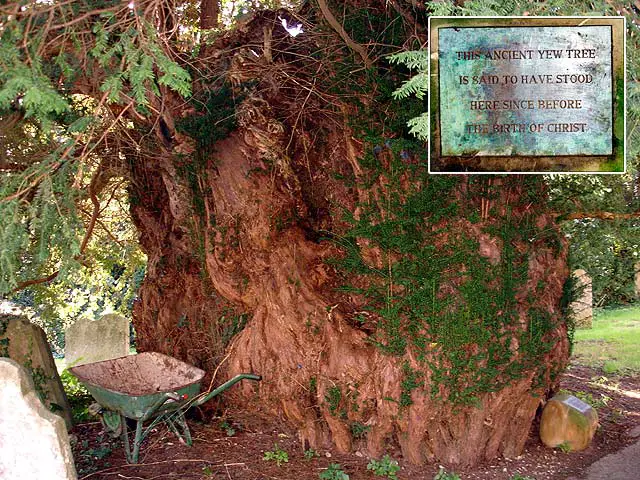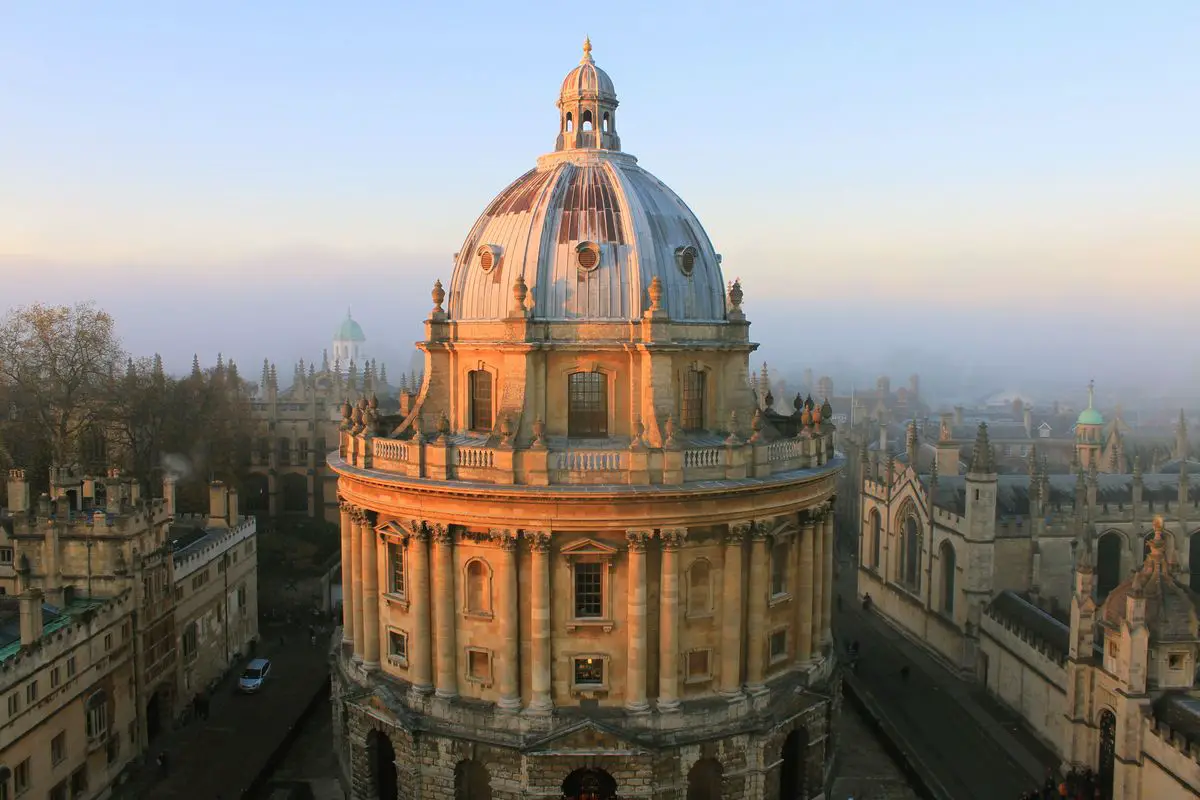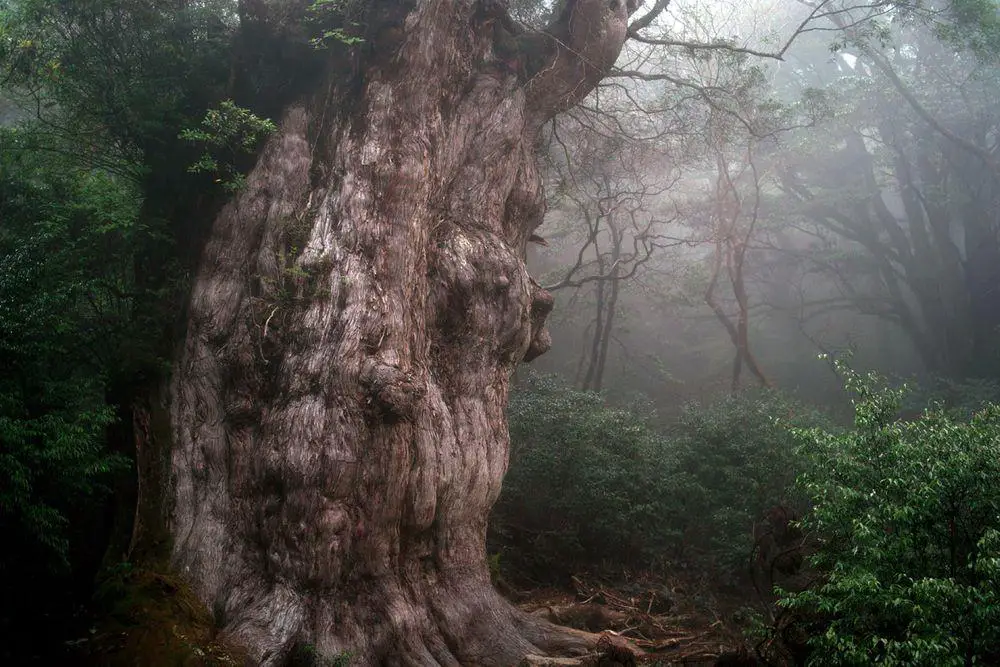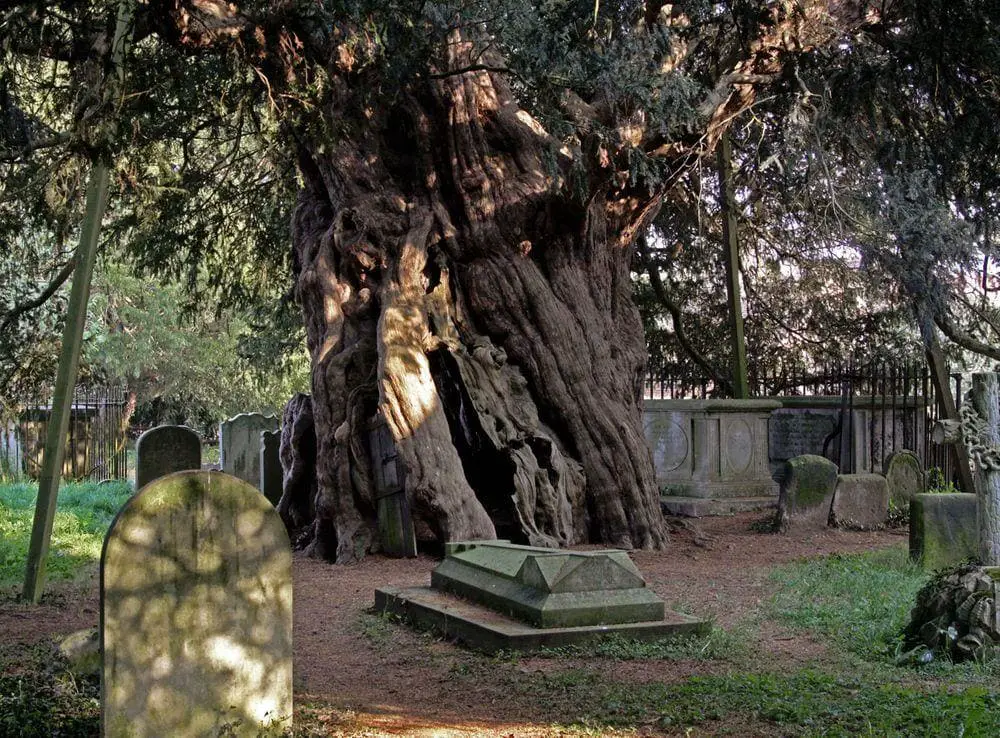World 🢖 Europe 🢖 United Kingdom 🢖 England 🢖 Kent
Wonder
Yews at Ulcombe Church

 In short
In short
Some of the most impressive yew trees in the United Kingdom are two ancient yews at Ulcombe Church. Contrary to most of the giant yew trees, these two trees have compact, massive boles with circumferences of 10.03 m and 9.64 m.
 40.8%
40.8%
GPS coordinates
Location, address
Species
Circumference
Map of the site
If you see this after your page is loaded completely, leafletJS files are missing.
 In detail
In detail
Ulcombe is an ancient settlement – in this area, people have lived since the Neolithic. The location of the settlements has shifted throughout the millennia, but, it is highly possible that an ancient shrine existed at the site of the present-day church well before the Christian times.
Ulcombe All Saints Church
The first church in Ulcombe was built already in Anglo-Saxon times but nothing remains of it.
The current church was built in Norman times, between 1213 and 1215 and then gradually enlarged and embellished over the next four centuries. The building was restored in the 1980s.
This is an interesting church with a wealth of medieval art, including wall paintings, sculptures and architectural elements.
Giant yews at Ulcombe Church
Four enormous yew trees grow in the churchyard. Especially impressive are two yew trees south of the church: the Old Yew and the New Yew… although the “New” one is not new! Both Ulcombe yews have massive boles that are more impressive than most of the British yews with similar dimensions: the circumference of many ancient yews is measured around several trunks that grow out from the former trunk or around the assumed former trunk that is not visible anymore. In the case of Ulcombe Yews this was not needed – their giant trunks leave no place for discussion or doubts.
The Old Yew
The Old Yew is the largest one. This male tree grows very close to the church and due to this its twigs were removed, opening a view of its giant trunk.
Some earlier measurements, that were made at the usual height of 0.9 m or 3 feet, gave a higher result: in 1892 – 10.72 m and 1955 – 11.48 m! But later measurements were made closer to the ground and there the circumference is smaller. The latest published measurement was made in 2013 and at the ground level the tree had a circumference of 10.03 m.
The Old Yew is very old. According to local tales, it might be even 2400 years old… but no one can prove or disprove this. Most likely it is younger, but there is little doubt that the yew grew there before the present-day 12th-century church.
The New Yew
The New Yew, according to folk tales, is “only” 1400 years old. Most likely, it is not THAT old either, but this giant tree for sure has lived through many centuries. The New Yew is a female tree and it is wonderfully different from the Old Yew. Its bark has a wonderful red hue and, if the trunk of the Old Yew is gnarled and with many bulges, the New Yew has smooth, elegant forms. Its circumference may include or exclude one protruding branch, that is united with the tree at the ground level. Due to this, the tree is measured at the ground level and its circumference in 2013 was 9.63 m.
Two other yews
On the other side of the church, to the northwest of it are two more enormous yew trees. One is a male tree, 6.2 m in circumference at a height of 1.5 m (1999). The other is a female, 6 m at a height of 1.5 m (2013).
References
- Yew/Yews at Ulcombe, Ancient Yew Group. Accessed on December 10, 2023.
- History of Ulcombe, Ulcombe Parish Council. Accessed on December 10, 2023.
Yews at Ulcombe Church are included in the following article:
 Linked articles
Linked articles

Wonders of England
The natural and cultural wonders of England are very diverse and here are found some of the world’s most impressive landmarks in several categories, such as churches and museums.

Trees
The category includes some of the most impressive and interesting separate trees in the world. The total number of tree species in the world still is a wild guess – maybe 10,000 and maybe 100,000 but most likely somewhere in between. Every month there are reported new tree species from the whole world, including Western Europe.

Wonders of the United Kingdom
Throughout many centuries the United Kingdom has enjoyed relative political stability and wealth. As a result, humans have created here countless amazing and well-preserved values of art and history.
 Recommended books
Recommended books
The God Tree
The God Tree is a great read and will make people think again and again about Yews’ – David Bellamy, the Naturalist. This is the first book to take up the quest for the Golden Bough since JG Frazer’s classic study in 1915 with the discovery of the bough growing once more, as the rare adornment of a small number of ancient Yews.
The Ancient Yew: A History of Taxus baccata
The gnarled, immutable yew tree is one of the most evocative sights in the British and Irish language, an evergreen impression of immortality, the tree that provides a living botanical link between our own landscapes and those of the distant past. This book tells the extraordinary story of the yew’s role in the landscape through the millennia, and makes a convincing case for the origins of many of the oldest trees, as markers of the holy places founded by Celtic saints in the early medieval ‘Dark Ages’.



